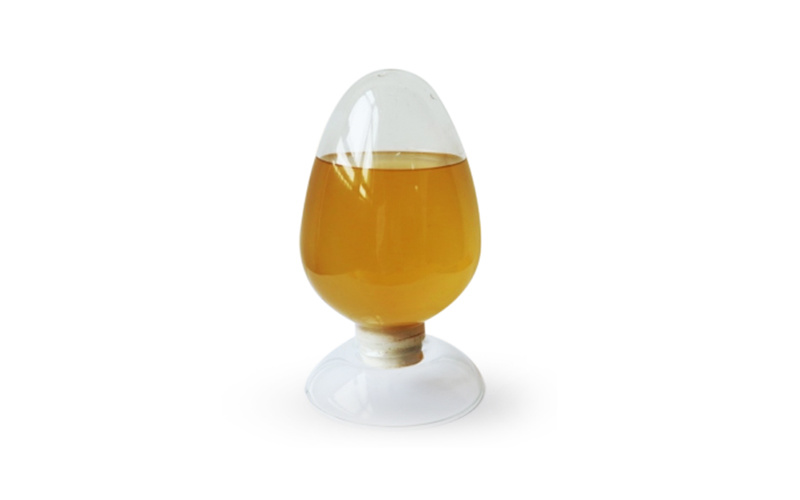Anti-stress Biostimulants
Release Time :
2025-04-24
Anti-stress biostimulants are designed to help plants cope with various stresses. They can be applied to plants exposed to abiotic stresses such as drought, salinity, or extreme temperatures.
Anti-stress biostimulants are becoming increasingly important in various industries. Anti-stress biostimulants are substances that can help organisms, especially plants, to better cope with different types of stress. These stressors can include environmental factors such as drought, salinity, extreme temperatures, and biotic factors like pests and diseases. Unlike traditional stress-relieving agents, anti-stress biostimulants work in a more natural and sustainable way, enhancing the organism's inherent defense mechanisms.
How Anti-stress Biostimulants Work
Anti-stress biostimulants function through multiple pathways. One of the main mechanisms is the regulation of hormonal balance. For example, they can influence the production and action of stress-related hormones such as abscisic acid in plants. By modulating these hormones, anti-stress biostimulants can help plants to close their stomata more efficiently during drought, reducing water loss. Another way they work is by enhancing the antioxidant defense system. They can boost the production of antioxidant enzymes like superoxide dismutase and catalase, which can neutralize harmful reactive oxygen species generated during stress conditions.

Benefits in Plant Growth and Development
In the context of plants, anti-stress biostimulants offer a plethora of benefits. Stress Tolerance is a major advantage. Plants treated with these biostimulants can better tolerate abiotic stresses, leading to higher survival rates. For instance, in saline-affected soils, plants treated with anti-stress biostimulants show improved growth compared to untreated ones. Additionally, anti-stress biostimulants can also enhance crop quality. They can increase the content of beneficial compounds such as vitamins and antioxidants in fruits and vegetables, making the produce more nutritious and marketable.
Types of Anti-stress Biostimulants
There are several types of anti-stress biostimulants. Microbial-based Biostimulants are one category. These are derived from beneficial microorganisms such as certain bacteria and fungi. They can colonize the plant roots and secrete substances that act as anti-stress agents. Protein-Hydrolysate Biostimulants are another type. These are made from the hydrolysis of proteins and can provide plants with amino acids and peptides that are beneficial for stress tolerance. Seaweed-Extract Biostimulants also play a role. Seaweed extracts are rich in growth-promoting substances and can enhance plant resistance to stress.
Applications in Agriculture and Beyond
In agriculture, the use of anti-stress biostimulants is on the rise. They can be applied to a wide range of crops, from cereals to fruits and vegetables. Farmers can use them to protect their crops from unpredictable environmental conditions, reducing yield losses. However, the applications of anti-stress biostimulants are not limited to agriculture. In horticulture, they can be used to improve the quality of ornamental plants. Moreover, in the field of environmental restoration, these biostimulants can be used to help plants establish in degraded ecosystems where stress factors are prevalent.
RELATED NEWS
Unlocking Growth: The Role of Biotechnological Biostimulants in Agriculture
Unlocking Growth: The Role of Biotechnological Biostimulants in Agriculture Table of Contents 1. Introduction to Biotechnological Biostimulants 2. What Are Biotechnological Biostimulants? 3. Benefits of Biotechnological Biostimulants in Agriculture 4. Mechanisms of Action of Biostimulants 5. Types of Biotechnological Biostimulants 6. Applications of Biostimulants in Agricu
2025-05-01
Unlocking the Power of Famous Anti-Stress Biostimulants for Enhanced Wellbeing
In recent years, the significance of managing stress has gained momentum, especially as research continues to unveil the negative consequences it can have on our health. Among the various solutions available, famous anti-stress biostimulants have emerged as prominent players in addressing stress-related challenges. These biostimulants, which enhance plant growth and resilience, have been found to
2025-04-30
Unlocking the Power of CE Plant Extract Biostimulants for Sustainable Agriculture
Unlocking the Power of CE Plant Extract Biostimulants for Sustainable Agriculture Table of Contents Introduction to CE Plant Extract Biostimulants What Are Biostimulants? The Importance of Sustainable Agriculture Benefits of CE Plant Extract Biostimulants Mechanism of Action: How Biostimulants Work Application Methods for Effective Use Case Studies: Successful Implemen
2025-04-29
Unlocking the Benefits of Affordable Enzyme Biostimulants for Sustainable Agriculture
Enzyme biostimulants are gaining traction in the agricultural sector as an innovative solution to enhance plant growth and soil health. These products harness the power of naturally occurring enzymes to stimulate biological processes in plants, leading to improved nutrient uptake, stress resistance, and overall vigor. For those exploring cost-effective agricultural solutions, understanding cheap e
2025-04-28
The use of plant extract biostimulants offers numerous benefits to both farmers and the environment
2025-04-28
Hormonal biostimulants can be applied through various methods, including foliar spraying, soil application, and seed treatment
2025-04-28









